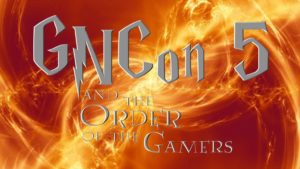
This series follows the trials, tribulations, successes, and failures of a fairly inexperienced GM who has recently picked up the hobby after a long time away. It aims to assist new GM’s by examining what worked, didn’t work, and what failed miserably as he spins up new campaigns, modules, encounters, and adventures for his friends and family in Fantasy Flight Games’ Edge of the Empire/Age of Rebellion/Force and Destiny system.
One of my favorite things to do is to talk with other GMs and players about their rpg experiences. I love talking about ideas and hearing how others handle situations. I also enjoy helping new GMs or GMs new to this system, exactly where I was a couple years ago. So every once in a while I like accumulating questions from gamers about the Star Wars RPG game lines, and see if I can answer them with some amount of intelligence. So, without further ado, a new installment of Ask a Decent? GM!
You may have received this question or the like there of, but How do you balance between Force users from FaD and non-force users during a campaign? Speaking in terms of running encounters and following obligations/back story. – Alex Lindley
So I have two full campaigns going with two gaming groups… both have been going over a calendar year. And both campaigns have characters from all three game lines in them. To be honest, I wasn’t really analyzing things when it started. I just wanted my players to pick whatever they wanted. I’ve had zero problems. First of all, Morality and Obligation are so simple to integrate. Giving Force users Obligation is simple and makes a lot of sense. You can give them a “Criminal” Obligation just because they’re Force users, or perhaps the “Bounty” Obligation having the Empire hunt them. Any other is fine too.
As far as making sure they have fun, I found a couple things to be true. First, make sure you build in ways for the Force users, if they like, to get lightsabers. Find a way to integrate them into stories the others will really enjoy. But the Force users want access to the things that make them awesome, so let them have that. After that, a Force user can go on any adventure. It’s more easy to integrate Force users into Edge/Age settings than it is Edge/Age characters into FaD settings.
As far as the players themselves, the Force powers in the game are already extremely balanced. It costs a lot of XP to dive into Force power trees. So while your other characters are reaching dedication, your Force user might still be a ways off. So don’t worry about that part. But I would suggest keeping most adventures in the Edge/Age area, and make sure your Force users can stumble on holocrons and crystals. Or you can do knight level play and give the Force users lightsabers immediately and cut all that story stuff out. But regardless which way you go, don’t be scared to combine it all. I find it quite fun!
My next reader had several questions. I had to choose from a few! Hopefully I chose wisely.
1) What would you like to see if they produced another Beginner Set?
2) One of your players creates a Force Sensitive Smuggler but isn’t interested in becoming a Jedi or Sith but after say a couple of years of gaming another player wants to introduce a new Force user PC what advice would you provide to both? – Colin Turvey
First… I’d love to see a Beginner Box from either the Clone Wars or the Old Republic. They are beginning to publish era-specific books now, and Beginner Boxes, like The Force Awakens one, allow you to get a glimpse into how to run a game in those eras. I think those would be fun.
For your second question, I think the answer is more simple than it may seem. First, it’s fine for any player to play any way they wish and as a GM, you shouldn’t worry about character choices routing your stories unless you wish them to in certain ways. Maybe the second player is a Force-sensitive emergent or exile, and the first player takes pity on them and offers to help. Perhaps he can be the mentor to the new player. The first player can also be the mentor/holocron one needs to learn new Force powers. In my mind, this syncs up extremely easily. If you’re playing in the suggested time period of the civil war, then Jedi are beyond rare, nearly mythic. In my games no one actually becomes a true “Jedi” even if they’re following the ways of one. But hey it’s your game and you can throw canon out the window in the name of fun… don’t be afraid to throw things out the window!
1) When do you upgrade a skill check without using a dark side destiny point?
2) Have you ever used 3 or more ranks in the adversary talent? – Nick Poulimas
For the first question, I assume you mean to upgrade the difficulty of a check, rather than a skill check, without using a dark Destiny Point as an excuse to do it. Here’s my number one rule as a GM when I do so: “Whenever disaster could strike.” So, if the team is doing an astrogation check to see if they arrive somewhere on time, I won’t do it. But, if the team is trying to sneak past a stormtrooper patrol, and one wrong move sets off an alarm, I sure as heck will do it. A team climbing a tree, I won’t upgrade the difficulty of the athletics check. But a team trying to climb down a cliff wall with a lot of equipment on their back, sure I will. So that’s my litmus test.
On the second question, the answer is yes. Three ranks, but no more. Three is a nasty Inquisitor. I think Adversary 4 would be reserved for Darth Vader or something on that scale. So Adversary 1 and 2 for most of my bad guys and then 3 for the really nasty stuff.
1) Do you session zero your games?
2) After all how do you decide what’s available and keep your player’s interest to continue playing?3) How often do your players use Destiny Points? – Colin Turvey
Is it better to build an open world and let players explore, or is it better to have very linear stories that keep the players on the rails? – William Roe
Kind of a newb question, but with the mechanics not factoring target stats or skills, what do my characters need do to avoid being shot? – Erich Von Hase
Scott Alden
Latest posts by Scott Alden (see all)
- We Never Saw His Face… We Saw His Soul - May 7, 2019

